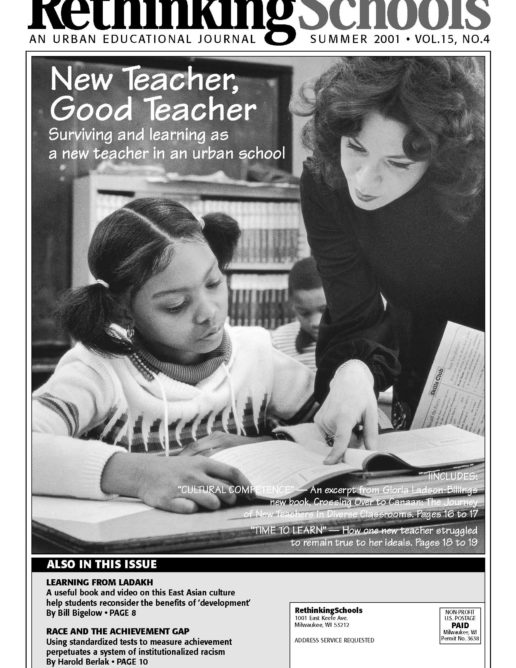Lessons Learned
Following are some of the lessons that Ladson-Billings summarizes from working with the Teach for Diversity certification program.
Prospective teachers working in diverse communities need the chance to learn about the students in the context of the community.
Many years ago, a teacher colleague told me, “School is the worst place to try to learn something.” Her words rang true for me throughout TFD. School is typically the first place that most children encounter failure. Students’ success at home and in the community rarely reflects itself in school tasks. By placing our TFD students in community-based programs (for example, day camps, neighborhood centers, community-run activities), the TFD students came to form different opinions about students’ strengths and capabilities.
Prospective teachers working in diverse community schools need an opportunity to apprentice with skilled cooperating teachers.
We considered the student teaching year an apprenticeship year rather than a “performance” year. The students were not engaged in the typical student teaching because their responsibilities were greater than typical student teachers, and they were not asked to “perform” the lessons they learned in their methods courses. Rather, their placement with knowledgeable, skilled, experienced teachers gave them the opportunity to try new things in a context of supportive critique.
Prospective teachers working in diverse school communities need an opportunity to ask lots of questions about teachers and teaching.
In most forms of professional practice, novices are encouraged and expected to ask questions about their work. Medical interns, law clerks, and cub reporters all understand that the way to improve their skills and earn a place in their respective fields is to ask insightful questions to enhance their professional repertoires. Because the TFD students were not expected to perform in front of the class, they came in filled with questions about students, the classroom, the school, and the community.
Prospective teachers need the opportunity to do serious intellectual work.
Perhaps it comes from the persistence of Hollywood images of teachers in our culture, but most people do not believe that teachers do intellectual work. Michele Pfeiffer in the movie Dangerous Minds, Edward James Olmos in Stand and Deliver, and Robin Williams in The Dead Poet’s Society are examples of the images of teachers that are inscribed in the public mind. Such depictions on the silver screen rarely show the intellectual work of teaching. Hollywood teachers do not prepare lessons; neither do they take graduate courses or participate in professional networks.
We attempted to make sure that the TFD participants understood that intellectual work was a major part of the enterprise. We challenged them to use theory (test it, challenge it, reinvent it) as they improved their practice. Although we were concerned about how they felt about aspects of their work, we perhaps were more concerned about how they thought about their work.

